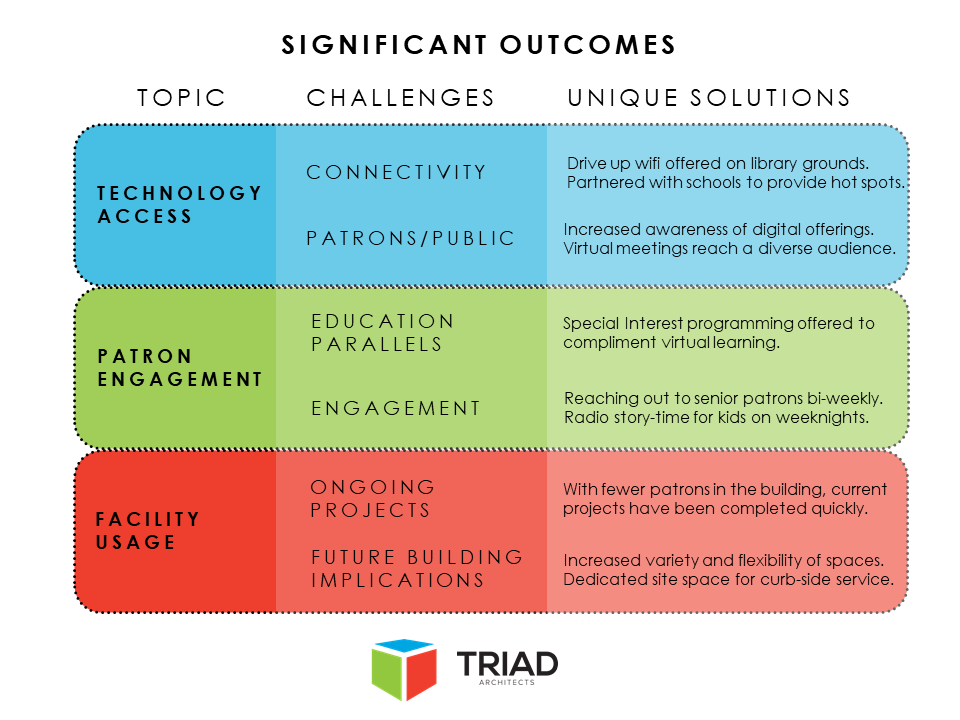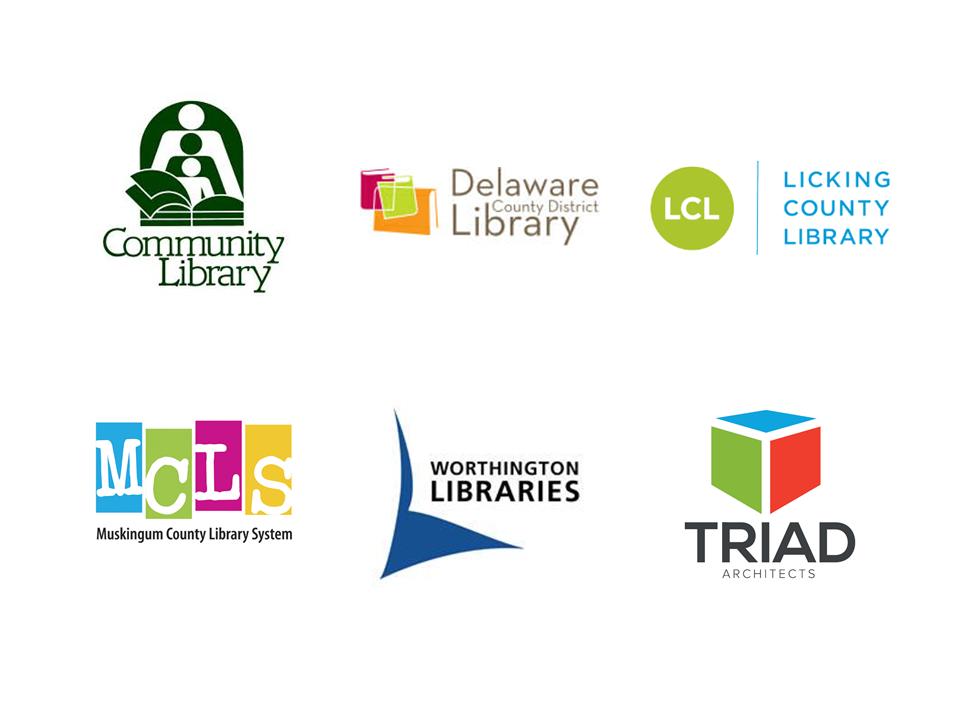Library Round Table Discussion

September 14, 2020
Author: Lauren Turnage, TRIAD Project Associate
The TRIAD team recently was host to another virtual round table discussion, this time focused on the impact of the COVID-19 pandemic and its effects on Ohio libraries. The conversation centered around the challenges and opportunities encountered by these libraries and the communities they serve.

Participants from Community Library, Delaware County District Library, Licking County Library, Muskingum County Library System, Worthinton Libraries, and TRIAD attended the roundtable.
The challenges brought about by the pandemic have spurred innovation and emphasized the library’s integral role in the community. How each library has approached technology access, patron engagement, and facility usage has sparked creative and unique solutions.

To distill the information, discussion topics were broken down into three categories.
Technology Access
As students transitioned to virtual learning early in the pandemic, the digital divide emphasized the inequity and sheer necessity of reliable internet access for all. The Community Library in Sunbury, OH, in tandem with Big Walnut Schools, ensured students had hot-spots for remote learning. Similarly, community members looking to connect with family or set up telehealth appointments were able to take advantage of the 24/7 Wi-Fi availability at Muskingum County and Worthington Libraries.
Since March, there has been an increased awareness among the public of Ebooks, audiobooks, and other virtual offerings. Libraries also shifted much of their public programming, including public meetings, to the internet. George Needham of Delaware County Library noted that they have had an uptick in attendance and reached new sectors of the community after making Board Meetings available on Facebook. As more aspects of everyday life have been pushed into the digital space, the need to balance virtual and physical offerings becomes apparent. How can library systems engage the community in the current socio-political climate?
Patron Engagement
vIn a recent episode of the Dewey Decibel podcast, Susan Nemitz (director of Santa Cruz Public Libraries) emphasized that, “there are very few places that we collect as human beings across ethnicity, age, [and] political spectrums,” as one would in a library. Library systems have been able to accommodate the spectrum of patrons they serve in unique ways:
-
Licking County Libraries have seen a 174% increase in drive-through window usage. Their 24-hour lockers have been used more as well, allowing families to check out materials in a safe and efficient manner.
-
Staff at the Worthington Libraries have consistently reached out to seniors that frequent their branches, checking in over phone or email.
-
Community Library has started special interest groups for students to provide variation in virtual learning.
-
Curated reading lists have given Delaware County patrons another way to learn about social issues such as Black Lives Matter.
-
In response to patron engagement and the digital divide, Muskingum County Library staff partnered with local radio stations to provide story-time for kids throughout the week.
Modified operating hours have given staff the ability to work on the above solutions while library leadership revisit their core services and envision future opportunities. How will innovative practices, emphasized during the pandemic, impact current and future facility usage and design?
Facility Usage
While some future facility planning has stalled due to proactive budget measures, ongoing facility renovations and construction projects have largely been completed at a faster rate as buildings are less populated. Decreased occupancy in the building has also allowed library staff to repurpose meeting rooms as quarantine areas for materials.
The pandemic has emphasized various aspects of library planning and design. Future facility considerations include operable windows, automated doors, and restroom fixtures, and meeting rooms/flex space that can be quickly repurposed. The increased popularity of drive-up windows and curbside service areas will likely inform site design and necessitate coordination with traffic patterns in and around the library.
The ability of these library systems to be nimble and imaginative in the face of COVID-19 speaks to their dedication to the communities they serve. TRIAD appreciates the insights shared by all participants and we hope to continue this type of dialogue and look forward to designing adaptable spaces that best meet the changing needs of the community and our clients.
Special thanks to the participants:
Chauncey Montgomery, Director of Community Library
George Needham, Director of Delaware County District Library
Babette Wofter, Director of Licking County Library
Stacey Russell, Interim Director and Fiscal Officer of Muskingum County Library System
Stephanie Freas, Assistant Director of Muskingum County Library System
Monica Baughman, Director of Support Services of Worthington Libraries
Brent Foley, TRIAD Architects
Jena Kessler, TRIAD Architects
Megan Stuart, TRIAD Architects
Lauren Turnage, TRIAD Architects

